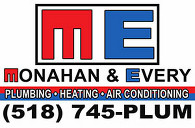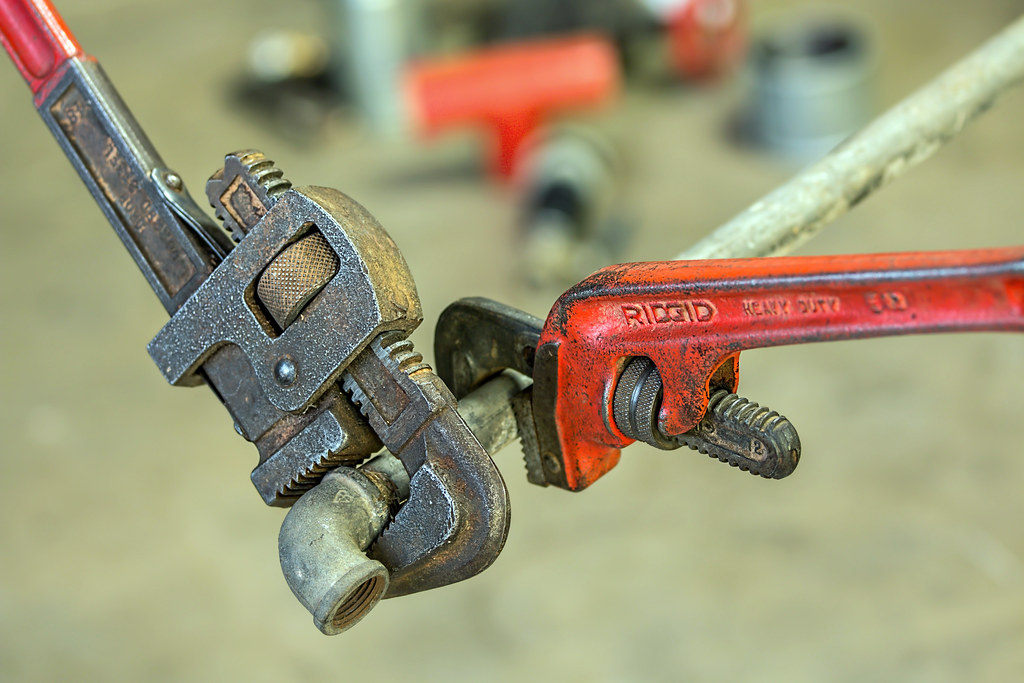

Call ME For All Your Plumbing and Heating Needs

Call Us For Free Estimates
Why Regular Plumbing Maintenance is Essential for Homeowners
Plumbing is one of the most vital systems in a home, providing water for daily needs like cooking, cleaning, and bathing. Yet, it is often overlooked until something goes wrong. Leaky pipes, clogged drains, or sudden water heater failures can be not only frustrating but also costly to repair. Regular plumbing maintenance, however, offers homeowners a proactive approach to avoid unexpected breakdowns, minimize expensive repairs, and even prevent potential health hazards.

In this article, we’ll explore why regular plumbing maintenance is essential for homeowners, the key benefits it provides, and the best practices to keep your plumbing system functioning optimally. From ensuring water efficiency to detecting hidden leaks before they cause extensive damage, regular maintenance can save you time, money, and headaches in the long run.
What Is Plumbing Maintenance and Why Is It Important?
Plumbing maintenance refers to the routine inspections and upkeep of your home’s water supply and drainage systems. These systems are complex, involving pipes, faucets, fixtures, water heaters, and waste removal systems. Plumbing maintenance helps ensure that each of these components is functioning correctly, prevents major failures, and maximizes the lifespan of your plumbing system.
The importance of plumbing maintenance can be broken down into several key areas:
- Preventive Maintenance: Keeping Your Plumbing in Top Shape
- Water Efficiency: Saving Resources and Money
- Emergency Prevention: Avoiding Costly Repairs
- Health and Safety: Safeguarding Your Family
1. Preventive Maintenance: Keeping Your Plumbing in Top Shape
The primary goal of regular plumbing maintenance is to prevent potential issues before they escalate into major problems. Plumbing systems, particularly the pipes and fixtures, endure significant wear and tear over time. Without periodic inspections, even small issues like a slow drain or a minor leak can go unnoticed, leading to larger, more expensive problems down the road.
Detecting Leaks Early
A common issue that many homeowners face is leaks. These leaks may not always be obvious and can sometimes go undetected for months or even years. Whether it’s a slow drip in a faucet or a hidden leak behind a wall, the damage caused by undetected leaks can be significant. Regular plumbing inspections allow professionals to identify these hidden issues before they cause water damage, mold growth, or a significant increase in your water bills.
Preventing Corrosion
Over time, the pipes in your home can corrode due to the minerals in the water, the type of materials used, or the conditions in which they’re installed. Corroded pipes are more likely to develop leaks or even burst, which can lead to costly repairs and water damage. A professional plumber can assess the condition of your pipes during an inspection and recommend replacement if necessary.
By identifying issues like leaks, corrosion, and the gradual buildup of sediment or mineral deposits, plumbing maintenance ensures that your system remains in good working condition, helping to avoid sudden breakdowns that could disrupt daily life.
2. Water Efficiency: Saving Resources and Money
One of the most practical benefits of regular plumbing maintenance is increased water efficiency. Wasting water not only drives up your utility bills but also contributes to environmental damage. In today’s world, conserving water has become an essential part of responsible homeownership.
Identifying Leaks
A minor leak might seem insignificant, but even small leaks can lead to significant water waste over time. A single leaky faucet can waste hundreds of gallons of water annually. During maintenance checks, plumbers often identify these small leaks—whether in faucets, toilets, or pipes—that homeowners may not have noticed. Repairing these leaks promptly can lead to substantial savings on water bills.
Optimizing Fixtures
Older plumbing fixtures, such as faucets, showerheads, and toilets, can be inefficient and waste water. Plumbers can recommend water-saving fixtures, such as low-flow showerheads or dual-flush toilets, which use significantly less water without sacrificing performance. Installing these fixtures as part of your regular plumbing maintenance helps reduce water consumption, lower utility bills, and contribute to sustainability efforts.
Preventing Clogs and Blockages
Clogs and blockages in the drains or sewage system often result from debris buildup over time. A clogged pipe requires more water pressure to flush waste, using more water and energy. Regular drain cleaning and inspections prevent this buildup, improving water flow efficiency and reducing the likelihood of blockages.
By maintaining a water-efficient plumbing system, you not only save money on your monthly water bills but also contribute to broader efforts to conserve this vital resource.
3. Emergency Prevention: Avoiding Costly Repairs
Emergencies in plumbing systems can arise at any time. A burst pipe, clogged toilet, or malfunctioning water heater can result in expensive repairs and cause significant disruption to your daily routine. Regular plumbing maintenance helps prevent these emergencies by identifying potential issues early.
Preventing Water Damage
Water damage caused by plumbing issues is one of the most expensive types of home repairs. Leaks from burst pipes, overflowing toilets, or malfunctioning dishwashers can result in substantial damage to your walls, floors, and furniture. A plumbing inspection allows a professional to catch small leaks or signs of pipe deterioration before they cause this kind of damage.
Extending the Life of Your Water Heater
Water heaters, particularly older models, are prone to issues such as sediment buildup, corrosion, and overheating. Routine maintenance, such as flushing the tank and checking the anode rod, can help prevent these issues, ensuring your water heater works efficiently and lasts longer. Without proper care, a neglected water heater could fail without warning, leading to a costly replacement.
Avoiding Unnecessary Costs
Fixing plumbing problems before they turn into major emergencies is not only more cost-effective but also minimizes the inconvenience of dealing with broken systems. When a plumber catches issues early on, you can often fix them before they become full-blown disasters. Emergency repairs are usually more expensive than routine maintenance, making regular checkups a much wiser financial investment.
4. Health and Safety: Safeguarding Your Family
Plumbing maintenance is crucial for maintaining a safe and healthy home environment. Poorly maintained plumbing systems can lead to a variety of health risks, including the spread of bacteria, mold, and other contaminants.
Ensuring Clean Drinking Water
Water contamination is a serious concern, especially if your plumbing system is old or poorly maintained. Leaky pipes or corroded fixtures can lead to contaminants entering your water supply. Regular maintenance ensures that pipes are clean, sealed, and free from harmful bacteria or other pathogens that could compromise your family’s health.
Preventing Mold and Mildew
Leaks in pipes or around fixtures can create conditions that are perfect for mold and mildew growth. Mold is not only unsightly but also poses significant health risks, particularly for people with respiratory issues, allergies, or weakened immune systems. Regular plumbing inspections ensure that any moisture issues are addressed before they lead to mold growth.
Dealing with Blocked Sewers
A blocked or clogged sewer line can lead to unsanitary conditions in your home. If not addressed, these blockages could cause sewage to back up into your house, leading to health hazards and significant property damage. Regular inspections help ensure that your sewage system is functioning properly and prevent the risk of such backups.
Best Practices for Plumbing Maintenance
To keep your plumbing system in excellent condition, here are some best practices that homeowners should follow:
- Schedule Inspections with a Professional Plumber: Regular inspections by a professional plumber are essential for detecting problems early. Schedule plumbing inspections every 12 to 18 months to ensure everything is in order.
- Install Water-Efficient Fixtures: Replace old faucets, showerheads, and toilets with water-efficient models to save water and reduce utility costs.
- Clean Drains Regularly: Periodically clean your drains to prevent blockages from hair, grease, or soap buildup.
- Inspect Water Heaters Annually: Check your water heater for sediment buildup, rust, or other signs of wear. Flushing the tank annually can prolong its life and improve efficiency.
- Be Mindful of What Goes Down the Drain: Avoid disposing of grease, food scraps, or non-flushable items down your drains, as they can lead to clogs and expensive repairs.
- Check for Leaks: Regularly inspect visible pipes, faucets, and hoses for leaks. Even a small leak can waste hundreds of gallons of water a year.
Regular plumbing maintenance is more than just a matter of convenience—it’s an investment in the health, safety, and efficiency of your home. By staying proactive with plumbing inspections, homeowners can prevent costly emergencies, conserve water, and extend the lifespan of their plumbing systems. In the long run, a well-maintained plumbing system will provide peace of mind, lower utility bills, and help protect your home from water damage. Whether you’re dealing with aging pipes or simply want to ensure your system runs smoothly, scheduling routine plumbing checkups is a smart and cost-effective way to keep your home safe and efficient.
By investing in regular maintenance, you’re not just avoiding problems—you’re ensuring that your plumbing system operates reliably for years to come.

